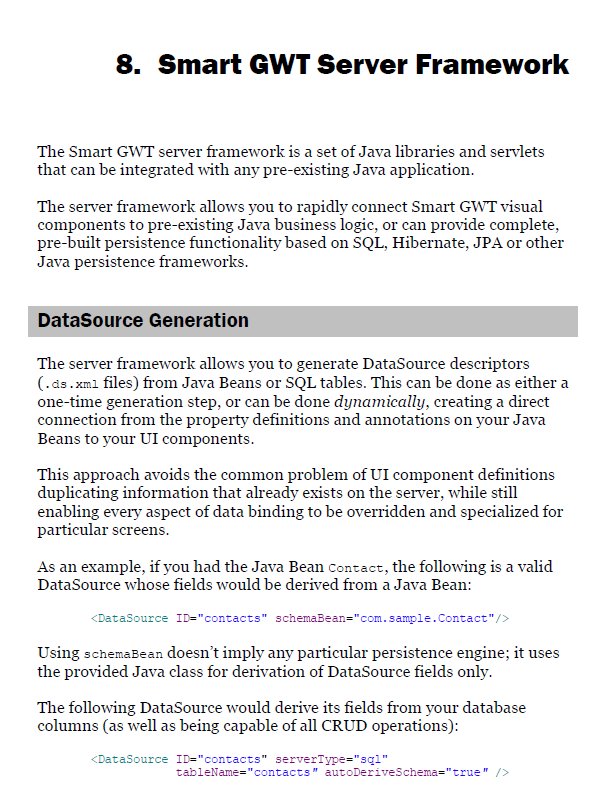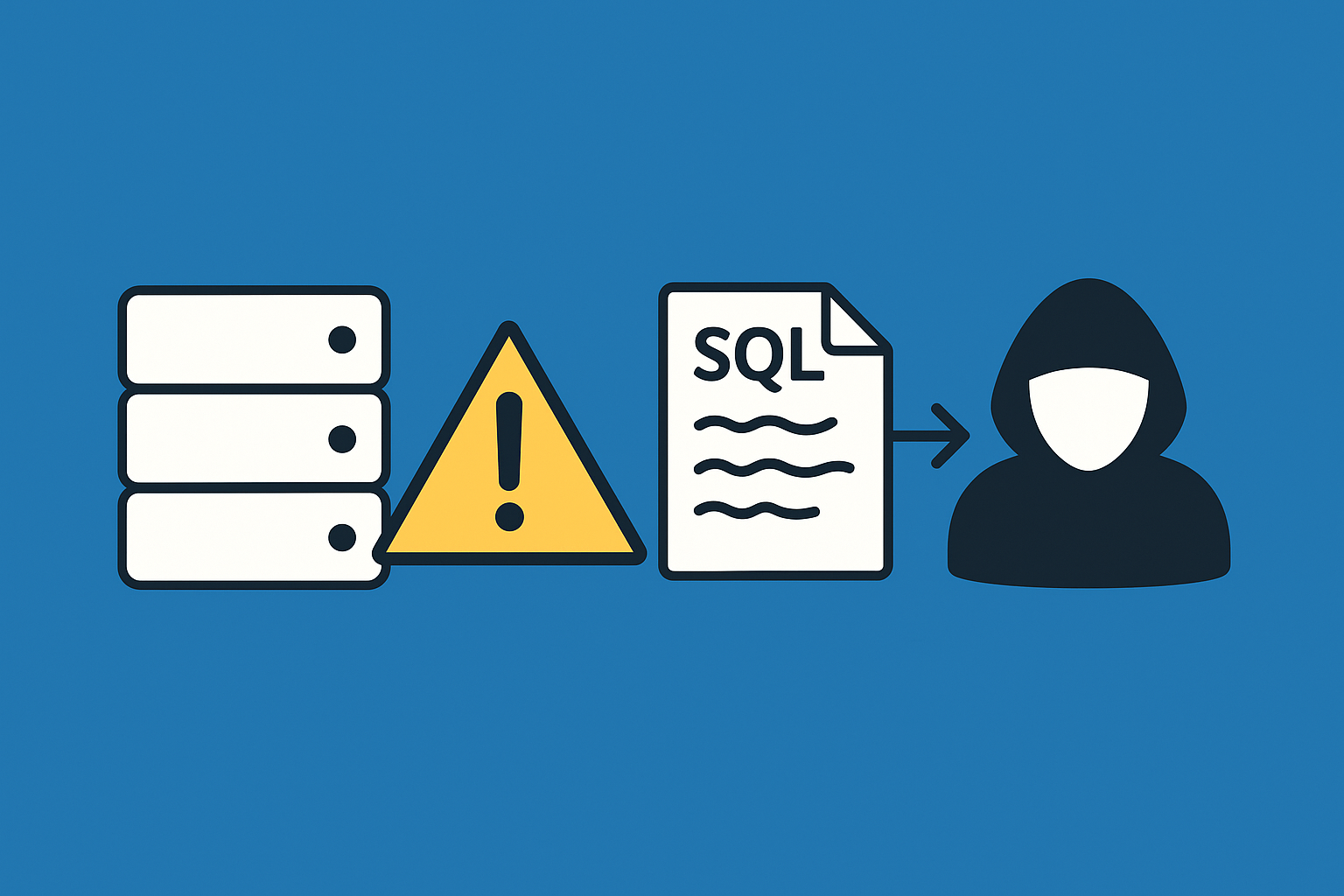Smart GWT QuickStart Guide
Now available: the Smart GWT QuickStart Guide.
This is the first piece of documentation to read when learning about Smart GWT. It is structured as a set of brief introductions to the major features of Smart GWT, with hands-on code samples you can run and experiment with, and links to deeper documentation to learn more.
This guide also introduces a huge amount of new material on the Smart GWT Server Framework and how it is intended to be used. Even if you’ve already been working with Smart GWT Pro/EE for a while, you should read these sections – even some internal Isomorphic developers learned new things while reviewing the guide.
To give an idea of the scope of this document, here is a partial list of chapters and major sub-headings:
1. Overview
2. Installation
Starting a New Project
Adding Smart GWT to an Existing Project
4. Visual Components
5. Data Binding
Databound Components
Fields
DataSources
Customized Data Binding
DataSource Operations
DataBound Component Operations
6. Layout
Component Layout
Container Components
Form Layout
7. Data Integration
DataSource Requests
Request and Response Transformation
Criteria, Paging, Sorting and Caching
Authentication and Authorization
Relogin
8. Smart GWT Server Framework
DataSource Generation
Server Request Flow
Direct Method Invocation
DMI Parameters
Adding DMI Business Logic
Returning Data
Queuing & Transactions
Queuing, RESTHandler, and SOAs
Operation Bindings
Declarative Security
Dynamic Expressions (Velocity)
SQL Templating
SQL Templating  Adding Fields
Custom DataSources
9. Extending Smart GWT
New Components
New Form Controls
Switching Theme
Customizing Themes
10. Tips
Architecture Tips
11. Evaluating Smart GWT
Evaluating Performance
Evaluating Interactive Performance
And here is a brief sample of some of the content:
Note: please use the QuickStart Guide with the latest nightly builds – some small enhancements were made that are utilized in some of the samples.





